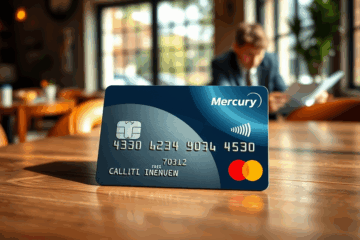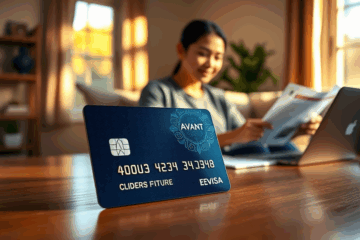Getting A Credit Card Without An SSN Is Possible
Credit Card access is a crucial aspect of financial independence for many individuals.
However, the absence of a Social Security Number (SSN) can pose challenges when applying for one.
This article will delve into various alternatives that enable applicants to secure a credit card without an SSN.
We will explore options such as alternative identification forms, the use of an Individual Taxpayer Identification Number (ITIN), and the opportunity to become an authorized user on another person’s account.
Additionally, we will highlight credit card issuers that cater to this demographic and review card options with enticing rewards.
Understanding Non-SSN Credit Card Applications
U.S. credit card issuers commonly require a Social Security Number (SSN) due to the significance of credit history and identity verification in assessing creditworthiness.
The SSN serves as a crucial identifier for matching applicants with their credit files held by the major credit bureaus.
This requirement is grounded in legal frameworks like the PATRIOT Act, which mandates financial institutions to have strict customer identity verification processes.
However, individuals such as recent immigrants, international students, and others without an SSN encounter significant barriers in accessing credit options.
Without an SSN, these applicants often find it difficult to establish a credit history in the U.S., putting them at a disadvantage.
Despite these challenges, there are alternative pathways available, such as the Firstcard Credit Card that cater specifically to non-SSN holders, providing a crucial resource for those looking to build their financial footprint.
Alternative Identification Options for Card Applications
Credit card issuers are increasingly accepting various forms of identification instead of the traditional Social Security Number.
One such option is the Individual Taxpayer Identification Number (ITIN).
Issuers like Capital One allow the use of ITINs to meet Know-Your-Customer requirements.
This can open doors for immigrants and non-residents who might not have an SSN.
However, the ITIN must be active and not expired.
Another widely accepted alternative is a foreign passport.
Banks and financial institutions often accept a passport as a primary form of identification, provided that it is current and machine-readable.
This enables individuals from abroad to access financial services more easily, removing barriers typically imposed by the requirement for a U.S.-issued Social Security Number.
Lastly, a U.S. state ID can also fulfill identification purposes for card applications.
Many financial providers, according to Finance Strategists, accept state-issued IDs for customer verification.
It is crucial that these IDs be valid and not expired, supporting the shift towards more inclusive banking practices.
Using an ITIN for Credit Card Access
An Individual Taxpayer Identification Number (ITIN) serves as an alternative to a Social Security Number (SSN) for individuals ineligible for an SSN but still needing to fulfill tax reporting requirements.
Major credit card issuers often accept an ITIN as it provides a way to verify identity when applicants cannot provide an SSN.
They accept it to broaden their customer base and accommodate non-citizens desiring credit-building opportunities.
The process to apply for credit with an ITIN involves several straightforward steps:
- Apply for an ITIN with the IRS, ensuring you have all necessary documentation.
- Gather proof of identity, such as a passport or driver’s license, to meet identification requirements.
- Research banks that accept ITIN applications, including Capital One and American Express.
- Complete and submit a credit card application, providing your ITIN when prompted for an SSN.
- Review your application status and respond to any requests from the issuer.
Adhering to these steps not only aids in the application process but also enhances your chances for approval.
Becoming an Authorized User on Someone Else’s Card
To add an authorized user to your credit card without requiring their Social Security Number, you simply need to provide the individual’s name and date of birth, as some issuers don’t demand an SSN to extend this privilege Source.
By enabling someone to become an authorized user on your account, you allow them to make purchases while you remain the primary account holder responsible for payment.
Adding an authorized user can be particularly beneficial for non-SSN holders, offering a chance to piggy-back on your account history and benefit from its positive credit-building potential if the credit card issuer reports their data Details.
However, it’s essential to weigh the benefits alongside potential drawbacks such as liability for any misuse.
- Helps build credit history if the issuer reports AU data.
- Boosts spending power without stringent requirements.
- Primary account holder liable for authorized user’s actions.
- Potential for financial stress if authorized user overspends.
Issuers Accepting Alternative IDs
| Issuer | Alternative ID Accepted | Highlights |
|---|---|---|
| Firstcard | Passport | Ideal for newcomers |
| American Express | ITIN | Cashback rewards with American Express Application |
| Capital One | ITIN | No annual fee |
| Bank of America | Foreign Passport | Introductory APR offers |
| Citibank | Foreign Passport | Robust fraud protection |
| Petal 2 Visa | ITIN | Cashback rewards without foreign-transaction fees |
| Zolve | Passport | Seamless application |
Card Types and Rewards for Non-SSN Applicants
Credit card issuers are increasingly recognizing the needs of non-SSN applicants by offering tailored options like secured cards, student cards, and entry-level rewards cards.
Secured cards such as those provided by Firstcard are a popular choice for their straightforward application process and security-deposit requirement that helps mitigate risks.
These cards can be a gateway for building credit history, offering benefits like cash-back rewards, albeit often with a modest rate.
For students, credit cards from issuers like Capital One and American Express stand out, accepting Individual Taxpayer Identification Numbers (ITINs) as an alternative to an SSN.
The Capital One Journey Student Credit Card, for instance, provides 1% cashback with a bonus for timely payments, incentivizing responsible credit use.
Meanwhile, entry-level rewards cards like the Petal 2 Visa offer attractive cash-back options without the need for a credit score at the outset, making them appealing for new entrants into the credit system.
Maximizing the value through these cards necessitates disciplined financial habits, such as paying the balance in full to avoid interest charges and utilizing rewards effectively.
Over time, these responsible practices can enhance credit profiles, paving the way for a broader array of financial products.
As applicants take advantage of resources like the Nerdwallet guide, they can better navigate the credit-building journey without the constraints of an SSN.
In conclusion, obtaining a credit card without an SSN is indeed possible through various alternative methods.
By understanding these options, individuals can successfully navigate the credit landscape and enjoy the benefits that come with holding a credit card.



0 Comments